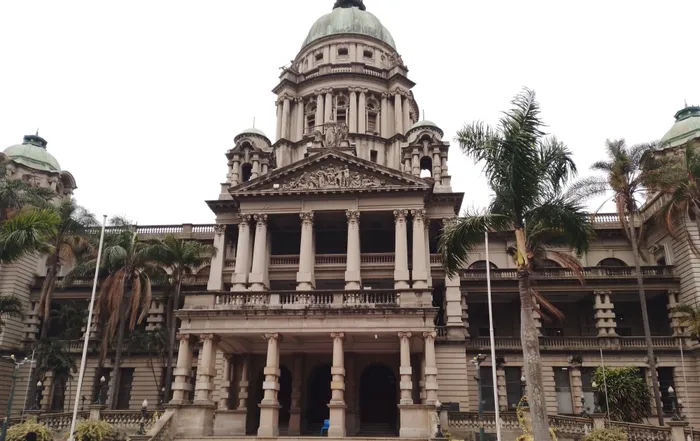eThekwini Municipality grapples with severe staff shortages in water and sanitation units

The eThekwini Municipality metro has been flagged by the AGSA for failing to fill critical vacancies
Image: Willem Phungula
AS the eThekwini Municipality battles to supply water to communities, it has emerged that more than half of the positions in the unit responsible for the delivery of water and sanitation to communities, are vacant.
The Auditor General of South Africa, Tsakani Maluleke, said, in a recent interview with SABC News, that her office did not understand why eThekwini has such a high number of vacancies in this unit, considering its size, location, and the budget of the municipality.
The municipality has close to 25 000 workers and a budget of more than R60 billion.
Maluleke was commenting last week shortly after tabling the report on the audit outcomes for municipalities. The audit outcomes revealed that municipalities are still not living up to their mandate, with about 41 of the nation's 257 municipalities receiving good audits. Seven of these are in KwaZulu-Natal.
She expressed concern that only one metro had achieved a clean audit, describing this as a serious indictment in light of the fact that close to half of the country's population lives in metros, which have substantial budgets.
The findings on vacancies in eThekwini have triggered concerns among councillors, as the municipality is facing a serious water crisis, with many communities affected by prolonged outages resulting from water leaks, ageing infrastructure, and vandalism of this critical infrastructure.
Maluleke noted that even large municipalities have not invested in the infrastructure needed to ensure efficient operations.
“What we are seeing is that far too many municipalities have not invested in the technical capabilities required to run their operations. Even in the metros, some have vacancies in key technical roles that remain unfilled for up to 80 months. For example, in Buffalo City, an engineering position was left unfilled for that long.
"The eThekwini Metro is another serious concern when it comes to vacancies, with 58% of positions in the area of infrastructure for water and sanitation remaining unfilled. The question arises: why does a city as large as eThekwini struggle to attract and retain the skills required to maintain its infrastructure and develop new projects?"
During visits to infrastructure projects in municipalities, she said the AG's office found many with problems, including cost overruns, delayed projects, and poor-quality work, necessitating additional spending. “Much of this is about leadership that does not invest in the necessary technical skills and does not insist on decent governance practices to monitor how money is being spent and how assets are being managed,” she explained.
ActionSA councillor Zwakele Mncwango stated that this is a serious issue. “We have been raising this issue on water and sanitation; hence, we (city) cannot even deal with the issue of sanitation because there are no technical capabilities in the unit. It was proven when the municipality outsourced the function of looking after its (water treatment works) to uMngeni-uThukela Water.
"These issues have led us to court. Why would we need to go to court to get the municipality to address the issue of sanitation? We have water losses of up to 58%. They should be hiring people to fix the infrastructure,” said Mncwango
The eThekwini Municipality was contacted for comment last week, and it stated that it is still gathering the necessary information.
Mdu Nkosi, chairperson of the Trading Services Committee, which oversees water and sanitation, said there will be an engagement between the city manager, Musa Mbhele, and officials in the water and sanitation unit to address the issues of vacancies raised by the AG.
“I have been made aware that there is a serious shortage in that cluster, but with the budget passed, we believe the process will begin to fill these posts,” Nkosi stated.
He added that the shortage of staff is causing significant problems in service delivery. “For example, you can have water tankers; however, water will not be delivered to the communities if there are no drivers. We want to buy more of our own tankers to have more control over the process, including where our water tankers are delivering and ensuring they are in touch with the councillor. We cannot control this if we rely on external contractors.”
Speaking on the further impact of not having the necessary staff in place, he said, “If there is a burst pipe, the speed required may not be available because you are relying on someone from elsewhere. We should have our own plumbers that we could discipline if necessary. It is very hard to discipline someone from an outside contractor,” Nkosi added.
Related Topics:
